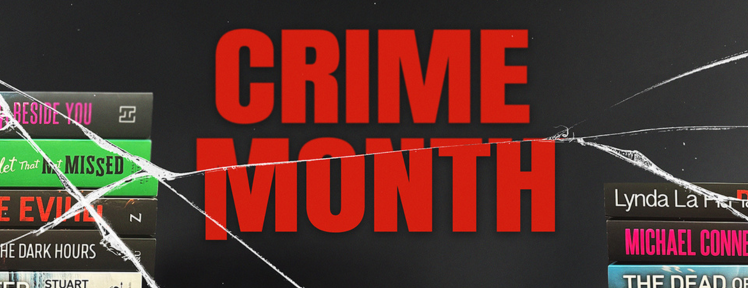Steve Toltz was born in Sydney, Australia in 1972. His first novel, A Fraction of the Whole, was shortlisted for the Man Booker Prize and the Guardian First Book Award. His second novel, Quicksand, won the 2017 Russell Prize for Humour.
Today, Steve Toltz is on the blog to answer a few of our questions about his new novel, Here Goes Nothing. Read on …
Please tell us about your book, Here Goes Nothing!
ST: Here Goes Nothing is a love triangle that takes place between this world and the next. It’s a slap in the face to the atheist who thinks that death will be sweet relief of nothing, and to the religious type who thinks that death will be a very specific reward to them and their particular group.
How did you come up with the idea for this story?
ST: There are many imprecise answers to this question. I’ll give you two. 1. In 1999, I walked out of the movie Magnolia and thought: wouldn’t it be fun to write a story that cycled between multiple characters—except some are on earth, and some are not. Then 2. Around twenty years later, I began to write a story that addresses the fear of the opinions of other people, and thought how it would be interesting to explore how durable our fears and petty concerns are—it wasn’t hard to imagine them extending beyond the grave.
There have been many different iterations of the afterlife in popular culture and media. Can you tell us about some of the ideas and inspirations behind yours?
ST: I was interested in the hubris of religious imagination that purports to know what awaits, but is also limited in imagination—in thousands of years we really haven’t innovated in our conception of what the afterlife would be; we see it either as a reward, a waiting room, or a punishment. Almost all our versions, whether they be heaven, hell, purgatory or limbo always assume a clear authority figure, some kind of hierarchy where answers to long awaited questions are given. Even in literary depictions of hell we find an orderly place with a structure we understand. In Here Goes Nothing, I wanted to go in another direction, a place where the mysteries are not solved but rather are multiplied.
What interests you as a writer about the relationship between life and death?
ST: What interests me most is always human motivation, human behaviour. Death figures so prominently in my work because one way or another, it’s a key motivating factor for human beings; either we’re afraid of it and it makes us dangers to ourselves, or we struggle to avoid it, or we overvalue ourselves because of it, or we are so afraid of it, we flip into denial and can’t even use it to get a reasonable amount of perspective. There’s a lot to explore there.
‘I was interested in the hubris of religious imagination that purports to know what awaits, but is also limited in imagination—in thousands of years we really haven’t innovated in our conception of what the afterlife would be.’
Angus Mooney is the unlucky protagonist of Here Goes Nothing. What was your favourite thing about bringing him to life?
ST: I liked writing a character with a natural intelligence but who is unread, and a character whose chief virtues is non-understanding anything around him. He’s also one of those people who it might be fair to say that the best thing about him is the person who loves him.
Can you tell us a little bit about your journey towards becoming a writer?
ST: Looking back it now seems inevitable. Writing little stories was my method of creative expression from a very young age, and then in my twenties, finding myself with zero marketable skills, what else could I do but double down on the only one I had an aptitude for?
Who do you most admire in the writing world?
ST: I admire people who genuinely seemed to have removed the fear of the opinions of others to a drastic degree. Or in today’s parlance, writers who ‘give zero fucks.’ The Austrian writer Thomas Bernhard was one. Today, the writer that probably most fits this is Michel Houellebecq. Philosophical, brutal, poetic, rude, cynical, he is able to tell a very human story while simultaneously placing it within a large societal context, making you laugh and giving you a bird’s eye view of a hundred years of culture at the same time. Another writer I admire on the sentence level is the Irish writer Kevin Barry. I can’t understand how he writes such beautiful and wild and wonderful sentences.
What is the last book you read and loved?
ST: The Employees by Olga Ravn, translated by Martin Aitken. It’s strange and haunting series of reports from human and non-human employees describe their work life aboard a doomed spaceship.
What do you hope readers will discover in Here Goes Nothing?
ST: It has never occurred to me to hope for such a thing. I guess I hope people will buy it with money, and I hope that they enjoy it, and if they don’t enjoy it, I hope they never tell me.
And finally, what’s up next for you?
ST: Now that I’ve finished one loose thematic trilogy, perhaps I’ll start another. So far, the new novel is a domestic mid-life crisis story that explores consciousness, both human and artificial.
Thanks Steve!
—Here Goes Nothing by Steve Toltz (Penguin Books Australia) is out now.

Here Goes Nothing
Angus Mooney is in a dark place- the afterlife. His days are spent in aching embarrassment; god, religion, the supernatural - he was wrong about everything. He longs for his audacious, fiery wife, Gracie, but can only watch from the other side as she is seduced by his killer, who has stepped seamlessly into Mooney's shoes.
Meanwhile, life after death isn't all it's cracked up to be. Another pandemic is sweeping the globe; Mooney's new home is filling up fast, resources are scarce, infrastructure is crumbling, and he has to share an increasingly cramped...







 What do we know about the Boy Swallows Universe Netflix show?
What do we know about the Boy Swallows Universe Netflix show?  Booktopia’s top thrilling fiction picks for Crime Month
Booktopia’s top thrilling fiction picks for Crime Month  Booktopia’s Top First Nations Book Recommendations for 2023
Booktopia’s Top First Nations Book Recommendations for 2023
Comments
No comments